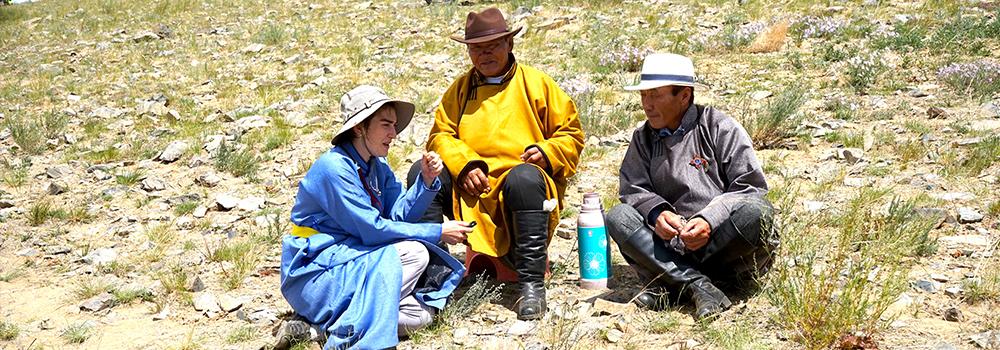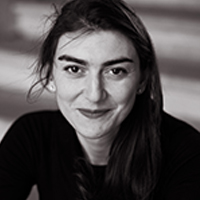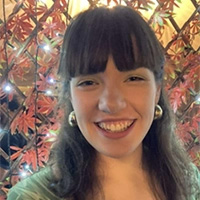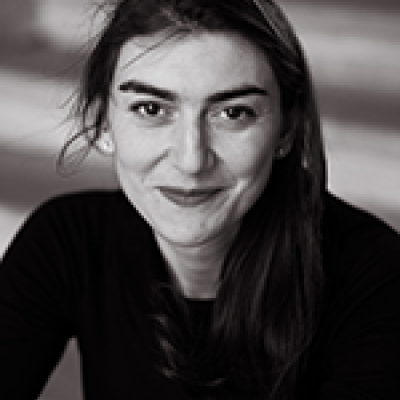At a crossroads: 'Geography needs more people like us'

Undergraduate student Eleanor Luxton interviews Dr Ariell Ahearn, a lecturer in Human Geography, on being working-class in academia, and why Mongolia is such a special place for her.
Ariell is nothing like the Big Bang Theory-esque stereotypes about academics that the media would have you believe. Despite being equipped with a sizeable rucksack, which gave me flashbacks to fieldtrips gone by, Ariell was buoyant when we crossed paths in the Dyson Perrins’ corridors. Far from lecturing me on her research into the agency and rights of Mongolian mobile herders and pastoralists, we found common ground – both of us felt we were at crossroads, with important decisions about our prospective futures to make. But Ariell left me less worried and more excited for what was to come. Whatever that may be.
Born in the US, Ariell’s working-class family were sceptical of her desire to apply for a DPhil at Oxford, but nonetheless encouraged her to pursue her dream. Having teachers for parents, I resonated with this. But Ariell noted how such a decision came with difficulties, not just financial, but visas too. At first, it seemed as if she might be speaking to her younger self, advising her to be a bit more cautious about her dream. But with almost two decades in the field, it became evident to me that Ariell had made the correct decision.
Ariell’s tone softened when she described a close Mongolian friend in her host family, based in Bayanhongor, who she’s stayed with since 2004, first as an anthropology undergrad in New York. “Her first child was born during my DPhil fieldwork… now he’s like ten!” She pointed to her phone, mentioning how they’re constantly WhatsApping. Ariell also recalled babysitting for another host family member one day, making herself useful, whilst unwittingly forming close bonds with the family that so graciously accepted her. Her eyes glistened as I said that I’d never heard of a researcher relationship like this before. Indeed, you would never know it from her online profile.
Ariell said, about her research on mobile pastoralists:
“Much of our world is set up to serve a sedentarised population with mobility controlled in particular ways... For people who move with their homes, such as mobile pastoralists, traveller communities or traditional mobile peoples, they have been criminalised.”
Ariell stressed the many threats facing rural populations in Mongolia, in part due to the government’s slowness in adopting Social Impact Assessments for new mining projects. These recognise the damaging consequences of resource extraction in a more “holistic” way (although it is not, in Ariell’s words, a “magic bullet”). Thanks to the efforts of an international team including Ariell, the Mongolian government finally passed the Social Impact Assessment regulations on the 8 February this year. Whilst I was impressed at how Ariell spoke Mongolian, I felt surprisingly proud at how her research was actively contesting the colonial legacy of the School of Geography and the Environment. Having read extensively for tutorials on the theme of decolonising education, I still hadn’t encountered many realistic applications of it. This kind of impactful research appealed to me as a human geographer, as did Ariell’s clear desire to listen to those with different worldviews.
Now, Ariell was forced to set aside projects that she cared for deeply due to a lack of funding, but also uncertainty as to where she would be in a few years’ time. “Something will come up” she proclaimed. Huddling closer to my phone - where I was recording the interview - she admitted sheepishly that she may have to enter the corporate world. I gasped theatrically and we collapsed into laughs once again.
A life in academia seemed to be a heavy burden for us both right now. But as Ariell loaded her massive rucksack onto her back and dashed off, I realised that her passion had me seriously considering a DPhil. She showed me that becoming a doctor was not only possible, but hugely rewarding too. Later that afternoon, I met with my supervisor, who said that my dissertation idea could inform a decade of further research. It felt, cheesily, like a sign. And even if Ariell isn’t quite sure what her next steps will be, I think we should all watch closely.
Passion will always find a way.

Ariell is the organiser of the Oxford Desert Conference, which aims to encourage collaboration between those researching everything from camels to nomadic people and agriculture, across the science/humanities divide. Encouraging debates between non-academics and academics, The Conference brings together those who research, work and live across the world's desert and semi-desert regions for two days of vibrant talks, presentations, panels and networking opportunities.

Prior to becoming the Course Director of the MSc/MPhil in Nature, Society and Environmental Governance, Ariell was an ESRC-GCRF postdoctoral fellow at the School for Geography and the Environment on an independent project called Managing Development and Infrastructure: Understanding State Engagements with Rural Communities in Mongolia. She completed her DPhil from the School for Geography in February 2016. She holds a BA degree in Anthropology from Hartwick College and an MPA from Cornell University in the United States.

Eleanor Luxton is an undergraduate geographer at Mansfield College and student journalist. She has written for publications including Routes - the journal for student geographers and the Cherwell. Eleanor's research interests include feminist geographies, colonialism, and children's geographies, and she's currently writing a dissertation on Afghan women's experiences of gender.
At a crossroads: 'Geography needs more people like us'
Undergraduate student Eleanor Luxton interviews Dr Ariell Ahearn, a lecturer in Human Geography, on being working-class in academia, and why Mongolia is such a special place for her.





